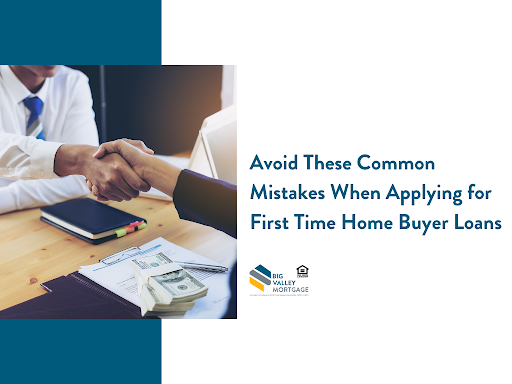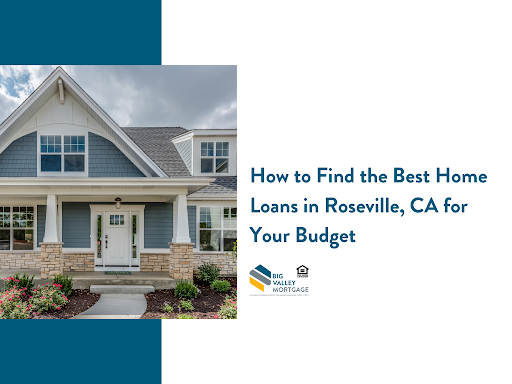
FHA loans are better suited for borrowers with lower credit scores since conventional loans have even lower down payment requirements than the FHA but tighter credit qualifications.
When exploring mortgage options, it’s likely you’ll hear about Federal Housing Administration and conventional loans. Let’s see, FHA loans are for first-time home buyers and conventional mortgages are for more established buyers — is that it?
Not necessarily.
Actually, the differences between FHA loans and conventional mortgages have narrowed in the past few years. Since 1934, loans guaranteed by the FHA have been a go-to option for first-time homebuyers because they feature low down payments and relaxed credit requirements.
But conventional loans — which are not insured by a government agency like the FHA, the Department of Veterans Affairs or the U.S. Department of Agriculture — have gotten more competitive lately.
Both types of loans have their advantages. Here are the factors to consider when deciding between an FHA and a conventional mortgage.

Down payment
This is where conventional loans have really improved. FHA loans used to be the low-down-payment leader, requiring just 3.5% down. But now, Fannie Mae and Freddie Mac both offer 97% loan-to-value products; that means a 3% down payment option — even lower than FHA — for qualified buyers.
From time to time, you can find lenders offering down payment options that are even lower on conventional loans.
Mortgage rates
Another distinction for FHA loans:
generally lower mortgage interest rates. However, the difference between the two was incremental last year. The 30-year fixed-rate for FHA purchase loans closed in 2016 averaged 3.95%, compared with a conventional mortgage rate on the same term of 4.06%, according to Ellie Mae.
Refinancing
As far as mortgage refinancing goes, the edge goes to FHA “streamline” refinancing. With no credit check, no income verification and likely no home appraisal, it’s about as easy a refi as you can get. But there are five requirements for an FHA streamline refinance.
Property standards
What kind of property are you buying? You can use a conventional loan to buy a vacation home or an investment property, as well as a primary residence.
The same can’t be said about FHA loans.
An FHA loan must be for a property that is occupied by at least one owner, as a primary residence, within 60 days of closing. Investment properties and homes that are being flipped (sold within 90 days of a prior sale) aren’t eligible for FHA loans.
FHA appraisals are more stringent, as well. Not only is the property assessed for value, but it is also thoroughly vetted for safety, soundness of construction and adherence to local code restrictions.
Loan limits
Where you’re planning to buy your home can play a role in what kind of loan is best for you. FHA and conventional loan guidelines allow wide latitude for borrowers in expensive areas, but in some cases, you may end up needing a jumbo loan, which is bigger than FHA or conventional limits.
FHA loans are subject to county-level limits based on a percentage of a county’s median home price. In certain high-cost areas, the limit in 2018 can be as high as $679,650 — and in Alaska, Guam, Hawaii, and the Virgin Islands, limits can be much higher than that.
For loans guaranteed by Fannie Mae and Freddie Mac, the government-sponsored companies that help fund the conventional mortgage industry, single-family home loan limits in 2018 are $453,100 in most of the country. Again, higher loan ceilings are available in pricier counties.
You can find your county’s loan limits for FHA (shown at the link as “FHA forward”) and conventional mortgages (“Fannie/Freddie”) on the Department of Housing and Urban Development website.
Mortgage insurance
With a down payment of less than 20%, both FHA and conventional loans require borrowers to pay mortgage insurance premiums. This insurance helps defray the lender’s costs if a loan defaults.
There are some differences between the two insurance programs.
With an FHA loan, if you put less than 10% down, you’ll pay 1.75% of the loan amount upfront and make monthly mortgage insurance payments for the life of the loan. With a down payment of 10% or more (that is, a loan-to-value of 90% or better), the premiums will end after 11 years.
Conventional loans with less than 20% down charge private mortgage insurance. It can be charged as an upfront expense payable at closing, or built into your monthly payment — or both. It all depends on the insurer the lender uses.
“The rates for PMI vary according to two factors: credit score and loan-to-value ratio,” Joe Parsons, a senior loan officer with PFS Funding in Dublin, California, says.
He provides the following examples:
A borrower with a 620 score with a 97% loan-to-value will pay 2.37%
The same loan for a borrower with a 760 score will cost 0.69%
A borrower with a 620 score and a 90% loan-to-value will pay 1.10%
The same loan for a borrower with a 760 score will cost 0.31%
PMI generally can be canceled once your loan is paid down (and/or your property’s value appreciates) to 78% of your home’s value.
Credit score standards
Here is the primary distinction between the two types of loans:
FHA loans are easier to qualify for. As far as a credit score, FHA sets a low bar: a FICO of 500 or above. Lenders can set “overlays” on top of that credit score requirement, hiking the minimum much higher.
But to qualify for the lowest FHA down payment of 3.5%, you’ll need a credit score of 580 or more, says Brian Sullivan, HUD public affairs specialist. With a credit score between 500 and 579, you’ll need to put down 10% on an FHA loan, he adds.
The average FICO score for FHA purchase loans closed in 2016 was 686, according to mortgage industry software provider Ellie Mae.
Conventional loans typically require a FICO credit score of 620 or better, Parsons says.
“A borrower with that score who can document income and assets will, in all likelihood, receive loan approval,” he says. “They will pay a higher price for that loan because of ‘risk-based pricing’ from Fannie Mae and Freddie Mac, but it is unlikely that they will be declined because of their credit score.”
Risk-based pricing means compensating the lender for taking the additional risk on a borrower with a lower credit score (the average FICO score for a conventional loan was 753 in 2016, according to Ellie Mae). In other words, the lower your credit score, the higher your mortgage interest rate.
Debt-to-income ratios
HUD’s Sullivan says your debt-to-income ratio — including the new mortgage, credit cards, student loans or any other monthly obligations — must be 50% or less for an FHA loan. Ellie Mae reports the average debt ratio for borrowers closing FHA purchase loans in 2016 was 42%.
Conventional loans usually require a debt-to-income ratio no higher than 45%, Parsons says. In 2016, borrowers with conventional purchase loans averaged a 34% debt ratio, according to Ellie Mae.
Foreclosures
Another instance where FHA and conventional standards have converged:
how bad credit is accounted for. Over the past few years, there have been numerous changes to the policies regarding bad-credit issues and how they are treated for FHA and conventional loans, with new standards implemented — and then expiring.
However, as it stands now, for a buyer to qualify for either an FHA or conventional loan, it typically must be two years since the bankruptcy was discharged and three years since a foreclosure or short sale.
There will definitely be hurdles to clear to prove to a lender that you have re-established your creditworthiness:
You’ll have to document that circumstances leading to the financial setback were beyond your control
You may have to attend a credit education course
Your loan will likely have to go through a manual loan approval process, which means approval and closing will likely take longer
So, which mortgage to choose?
Your decision may initially be based on your credit score. If it’s well below 620, an FHA loan may be your only choice. Above 620 and you’ll want to run the numbers on both to see what works best for you.
However, if you are serving in the military or are a veteran, a loan backed by the VA may be the way to go. VA loans usually require no down payment. And if you live in a suburban or rural area, a USDA loan could be a smart option, too.
Want to request a quote from us?
*The views, articles, postings, and information listed at this website are personal and do not necessarily represent the opinion or the position of Big Valley Mortgage.*












